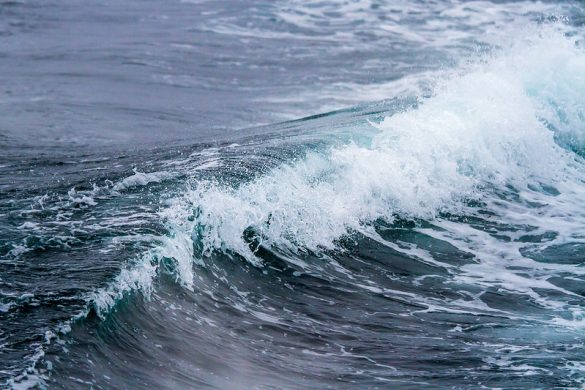Ny rapport samler viden om klimaforandringernes indvirkning på havene og maner til handling blandt verdens ledere. Hvis ikke der handles, kan fødevaresikkerheden trues med konsekvenser for kystsamfund mange steder.
IRIN NEWS, WARSZAWA, MONDAY 18.11.2013 – The Earth’s oceans are being forced to absorb more and more planet-warming carbon dioxide (CO2) emissions, causing them to acidify at rates not seen in the last 300 million years, says a new report released for policymakers today at the UN climate talks in Warsaw.
The oceans supply the oxygen in every second breath we take, and also absorb at least 33 percent of the CO2 human beings produce. Acidification not only limits the capacity of oceans to absorb CO2 but has the potential to affect food security.
“En Hiroshimabombe hvert sekund i havet i 30 år”
The report is a summary of the state of scientific knowledge on ocean acidification, based on the latest research. Scientists from across the globe involved in the research urged countries in Warsaw to work towards limiting the global temperature increase to less than two degrees Celsius by the end of this century.
Stefan Rahmstorf, Head of Earth System Analysis at Potsdam University, Germany, writes in a recent web-post that the “increase in the amount of heat in the oceans amounts to 17 x 1022 Joules over the last 30 years. That is so much energy it is equivalent to exploding a Hiroshima bomb every second in the ocean for thirty years”.
Fødevaresikkerheden truet
Fisheries support the livelihoods of 540 million people, or eight percent of the world’s population, says Wendy Broadgate, Deputy Director, Natural Sciences, for the International Geosphere-Biosphere Programme, one of report’s sponsors.
“However, very little is known about the direct effects of ocean acidification on fish that are the target of commercial and subsistence fishing, which results in high uncertainties in predicting changes in fisheries in the future.”
Scientists continue to research this aspect, she added.
The scientists estimate that by 2100, declines in mollusc production could lead to annual global economic losses of more US$130 billion (at 2010 price levels) if man-made emissions remain as they are.
Der er stadig håb
“There is hope if countries aim to lower emissions so that the global increase in temperature by the turn of century remains less than two degrees Celsius”
One of the major concerns is whether the ocean has reached a limit beyond which it would be unable to absorb more heat.
Broadgate says,
“Significant emissions reductions could ensure 50 percent of surface waters remain favourable for coral reef growth and corrosive conditions in most of the Southern Ocean can be avoided.”
Få muligheder for lokal handling
At a local level, the report suggests few mitigation measures other than developing sustainable fisheries management practices such as regulating catches to reduce overfishing.
The writers urge governments to protect their coasts and the habitats of fishes by maintaining protected areas that will help make them resilient.
Artiklen kan findes i sin fulde længde her: http://www.irinnews.org/report/99143/save-the-oceans-from-warming
Rapporten i sin helhed kan findes her: http://www.igbp.net/publications/summariesforpolicymakers/summariesforpolicymakers/oceanacidificationsummaryforpolicymakers2013.5.30566fc6142425d6c9111f4.html














